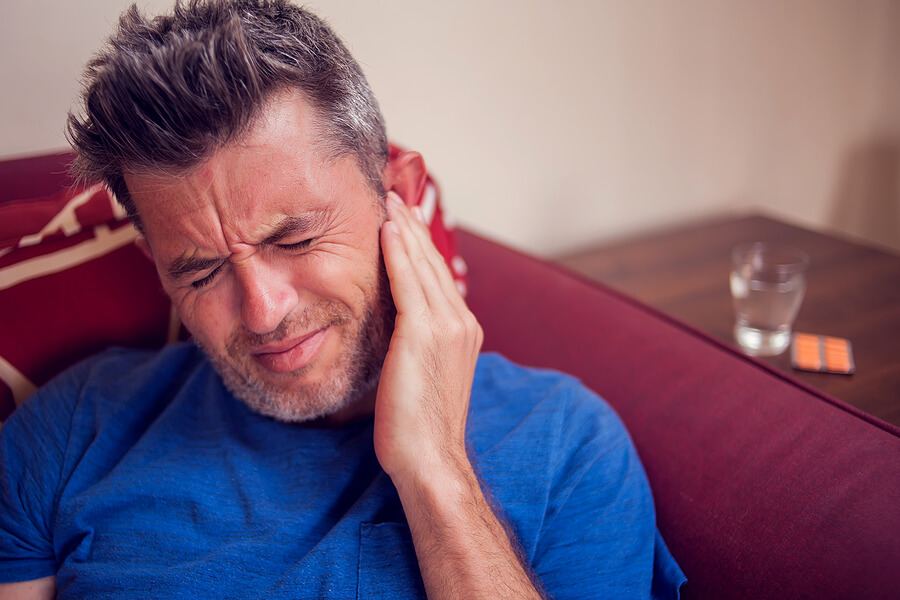- The Impact of Pets on Emotional and Hearing Health - April 26, 2024
- Strategies for Coping with Single-Sided Deafness - April 16, 2024
- Effective Strategies for Sharing Your Hearing Loss Journey - April 16, 2024
While the term “ototoxicity” might be unfamiliar, it’s a concept you may want to learn about. Ototoxicity refers to the lurking threat posed by certain medications and chemicals, which have the potential to wreak havoc on your auditory system, especially the inner ear and the auditory nerve. These insidious substances can harm the delicate structures responsible for both hearing and balance, potentially leading to hearing loss and related issues.
What Is Ototoxicity?
Let’s take a closer look at the word itself. “Oto” relates to the ear, while “toxicity” signifies the harmful impact of substances on the body. So ototoxicity refers to the harmful consequences of particular substances on the inner ear and the auditory nerve.
The inner ear is home to delicate hair cells that translate sound vibrations into electrical signals, which the brain interprets as sound. Furthermore, the inner ear helps you with equilibrium and spatial orientation. Ototoxic substances disrupt these mechanisms, causing havoc in both auditory perception and balance.
Ototoxic Substances
A number of medications and chemicals have surfaced as potential culprits in the realm of ototoxicity:
- Aminoglycoside Antibiotics: These antibiotics, often prescribed to combat severe bacterial infections, are infamous for their ototoxic properties. They can damage the hair cells in the inner ear, potentially leading to hearing loss.
- Loop Diuretics: Medications like furosemide, commonly used to manage conditions like hypertension or edema, can disrupt the fluid balance within the inner ear, potentially leading to hearing impairment.
- Non-Steroidal Anti-Inflammatory Drugs (NSAIDs): Some NSAIDs, especially when consumed in substantial doses over prolonged periods, have been implicated in ototoxicity. This category includes pain relievers like ibuprofen.
- Chemotherapy Drugs: Certain chemotherapy medications, such as cisplatin, have been identified as catalysts for hearing loss and equilibrium disturbances.
- Solvents and Chemicals: Encounters with chemicals such as toluene, styrene, or xylene, common in industrial or recreational settings, can pose a threat to hearing health.
- Heavy Metals: Metals like lead and mercury, found in various industrial environments, have also joined the ranks of potential ototoxic substances.
Prioritize Hearing Protection
One of the best things you can do to protect your hearing health is to establish a channel of open and transparent communication with your healthcare provider. Disclose your complete medical history, your ongoing medication regimen, and any concerns you might have about ototoxicity. They can assist you in selecting the most suitable treatment options while monitoring for any signs of hearing loss.
In cases where your healthcare provider deems a potentially ototoxic medication necessary, don’t hesitate to discuss alternative options that pose fewer risks to your hearing. Explore the possibility of dosage adjustments and periodic hearing assessments to ensure early intervention if necessary.
Regular Hearing Checkups
Scheduling routine hearing checkups with an audiologist is important for your hearing health. It offers an early-warning system to detect any changes in your hearing health. Early identification gives you more options for early intervention and decreases the risk of irreversible damage.
Keep an eye on your auditory well-being and be alert to any changes in your hearing. If you notice tinnitus (ringing in the ears), dizziness, or difficulty hearing, book a hearing test! These signs could be early warning signs of ototoxicity damage, and let you know it’s time to look after your hearing health.
A Hearing-Friendly Lifestyle
Promote hearing health through conscious lifestyle choices. You can minimize exposure to excessive noise, maintain a well-balanced diet rich in essential nutrients, stay hydrated, and engage in regular physical activity. These lifestyle changes are an important foundation for your auditory well-being.
When you’re in situations where exposure to loud noises is inescapable, such as concerts or industrial settings, ensure you’re using hearing protection. High-quality earplugs or noise-cancellation earmuffs can substantially reduce the risk of hearing impairment.
Book a Hearing Test
If you’re concerned about your hearing, it’s time to book a hearing test. We’ll assess your hearing, help you make smart choices for your hearing health, and make a customized plan to help you safeguard your hearing.
By staying up to date on ototoxic substances and adopting proactive measures, you can look after your hearing health. Remember that your hearing enriches your life in countless ways, and protecting your hearing is a lifelong investment in your overall well-being.

